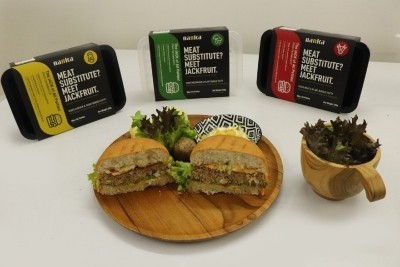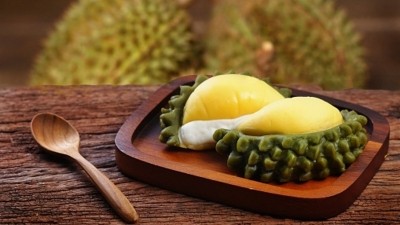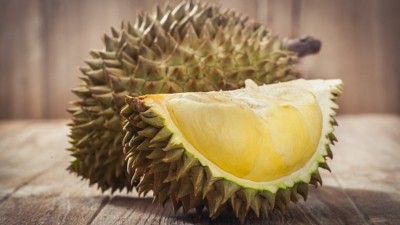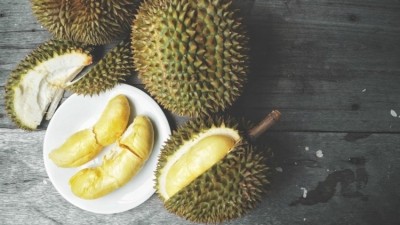Fruity electricity: Australian scientists create double-sustainable energy storage from durian and jackfruit waste
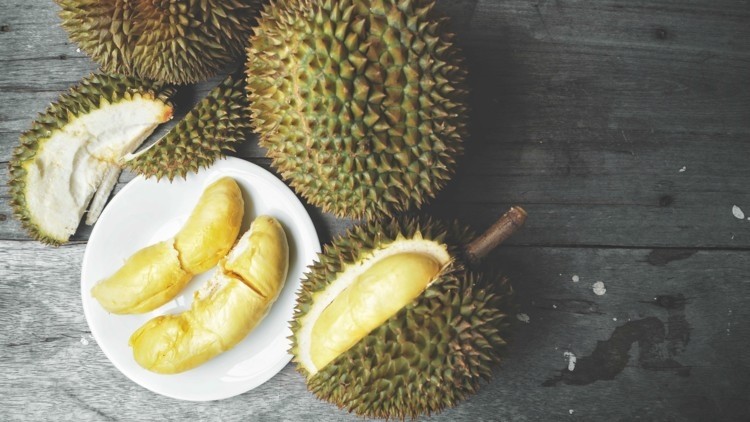
The study was conducted at the University of Sydney and was centred on the cores of both durian and jackfruit, which are generally discarded as food waste because only the flesh of both fruits, which surround large inedible seeds, are consumable.
The secret to this lay in the naturally-occurring carbon structures of the fruit cores, described as ‘fibrous’ and fleshy’, and which properties allowed for the effective storage of energy with some engineering.
“Using durian and jackfruit purchased from a market, we converted the fruits’ waste portions (biomass) into super-capacitors that can be used to store electricity efficiently,” said study co-author Associate Professor Vincent Gomes.
“[The fruit biomass was] heated in water and freeze-dried [to be] transformed into stable carbon aerogels — an extremely light and porous synthetic material used for a range of applications [including as] super-capacitors.”
According to ScienceDirect, carbon aerogels are extremely porous materials much like a carbon sponge with very large surface areas, both of which are important properties when it comes to allowing electrical storage.
Super-capacitors on the other hand are basically energy sources that are less powerful than a rechargeable battery but faster and more durable (can be charged up and reused many more times and at much faster speeds, but with lower voltages/energy density).
“Super-capacitors are like energy reservoirs that dole out energy smoothly. They can quickly store large amounts of energy within a small battery-sized device and then supply energy to charge electronic devices, such as mobile phones, tablets and laptops, within a few seconds," Prof Gomes added.
“[We] used the fruit-derived aerogels to make electrodes which we tested for their energy storage properties, which we found to be exceptional.”
Double-sustainable properties
The discovery can be considered as a environmentally sustainable one, most prominently from both the angle of food waste reutilisation.
“Durian waste [is] a zero-cost substance that the community wants to get rid of urgently due to its repulsive, nauseous smell,” said Prof Gomes.
“[However, we have found that it is also] a sustainable source that can transform the waste into a product to substantially reduce the cost of energy storage through our chemical-free, green synthesis protocol.”
Apart from the reuse of food waste for environmental conservation, the researchers also emphasised the environmentally friendly nature of their carbon aerogel production method, which Prof Gomes described as a ‘non-toxic and non-hazardous green engineering method’, as well as the higher efficiency of the fruit-based carbon aerogels as compared to traditional materials.
“The durian and jack-fruit super-capacitors perform much better than the materials currently in use and are comparable, if not better, than the expensive and exotic graphene-based materials,” he said.
“Confronted with [the] world’s rapidly depleting supplies of fossil fuels, naturally-derived super-capacitors are leading the way for developing high efficiency energy storage devices."
Durian the king of energy storage too
The durian-based carbon aerogels (DCA) were found to hold larger capacitance (energy) due to its ‘enhanced characteristics’ of 56% higher surface area and 21% higher porosity as compared to the jackfruit-based carbon aerogels (JCA).
“The specific capacitance measured for DCA was 591 F g−1, which is almost two-fold higher compared with that of the JCA (292 F g−1) electrode, indicating that a large proportion of the capacitor current is stored in the [DCA],” said the researchers.
“The DCA electrode [also] had significantly greater power density (82.9 W h kg−1) compared to that for the JCA (40 W h kg−1) at [the same] current.
“[The] performance of DCA [is outstanding] compared to that of JCA. [Nevertheless], both electrodes are attractive candidates for the next generation, high performance, yet low-cost supercapacitors for energy storage devices derived from biowastes.”
Study: Aerogel from fruit biowaste produces ultracapacitors with high energy density and stability
Source: Journal of Energy Storage
Authors: Lee, K. et. al.
